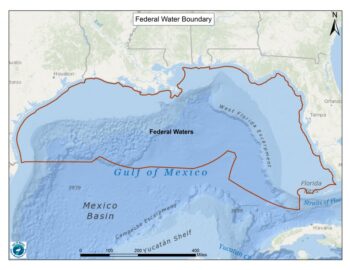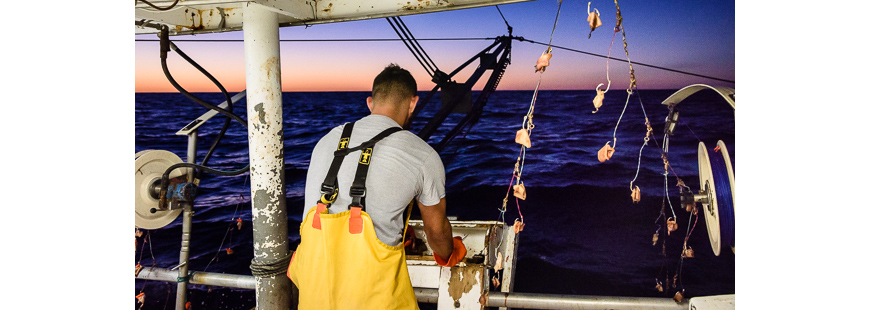The Gulf of Mexico’s most valuable fish stocks are under threat as years of conservation and fishery success are quickly becoming unraveled. Gag grouper and greater amberjack face 70-80% quota reductions. As of 2017, red grouper spawning biomass is the lowest it has ever been. Even the celebrated red snapper fishery is in decline. This trend threatens the wellbeing of the many small businesses, communities, and people along the Gulf Coast who rely on these fisheries for their livelihoods – each of whom already face the climate change-driven threats of increasingly severe storm systems and sea level rise. These declines also undermine consumer access to seafood – an already under-consumed source of micronutrients critical for public health – and the wellbeing of reef ecosystems themselves.
Successful management of fisheries in the Gulf of Mexico is best achieved by a management body whose membership – and decisions – balance the diversity of stakeholders who rely on the Gulf’s fisheries. Instead, the Gulf of Mexico Fishery Management Council’s seats and decision-making are dominated by private anglers and their supporters.

The Council’s jurisdiction (federal waters) extends from three to 200 miles off the coasts of Louisiana, Mississippi, and Alabama, and nine to 200 miles off Texas and the west coast of Florida.
Of the seventeen seats on the Council, only one has experience working in the commercial fisheries it manages. Many of these other members of the Council consistently vote in favor of private angler interests and against measures that would promote the long-term health of the Gulf’s natural resources. For example, last year the Council voted to increase red snapper quota despite 40 commercial fishermen reporting declines in abundance at a Council meeting. It also reduced the Gulf-wide quota for gag grouper and reduced commercial fishermen’s share of the fishery in order to allocate more fish to a recreational sector which produced 98.7% of all dead discards between 2010 and 2019 – a waste of over 3.3 million fish.
This dominance of the Council by a single interest group is harmful for both the Gulf’s ecosystems and for local economies, as it prioritizes the interests of stakeholders who fish for fun over those working men and women who rely on sustainable Gulf fisheries for their livelihoods and to help feed the nation. Both charter and commercial fishermen overwhelmingly disapprove of the current council balance, as evidenced by a recent letter to the U.S. Secretary of Commerce signed by 17 charter and commercial fishermen’s organizations from across the Gulf.
The Secretary of Commerce has the last say in the Council appointments and a clear responsibility under our nation’s foundational fisheries law – the Magnuson-Stevens Fishery Conservation and Management Act – to “ensure a fair and balanced apportionment…of the active participants (or their representatives) in the commercial and recreational fisheries under the jurisdiction of the Council.” When Secretary of Commerce Gina Raimondo makes her Gulf of Mexico Fishery Management Council appointment decision later this month, she has the opportunity to select candidates who would improve the fishery sector diversity and balance of this Council, and advance the Biden Administration’s priorities for conservation, working waterfront protection, and domestic food security.
We ask Secretary Raimondo to start to restore balance to the Gulf of Mexico Fishery Management Council. Fair and balanced participation from all sectors in the fishery management process leads to better fisheries policy that benefits the long-term sustainability of fisheries resources and the coastal communities – and millions of seafood consumers – that depend on them.

Members of the Gulf of Mexico Fishery Management Council. This photo and previous photo via the Council website.


